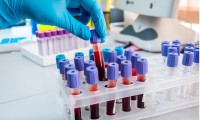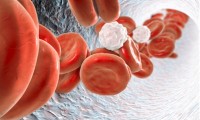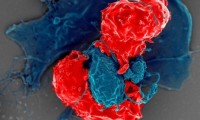-
Bayer CEO Bill Anderson makes his mark with major restructuring, ‘significant’ job cuts
- Source: drugdu
- 676
- January 20, 2024
-
Bora plants its flag in the US with $210M acquisition of generics manufacturer Upsher-Smith
- Source: drugdu
- 317
- January 20, 2024
-
Brush Biopsy Test Detects Oral Cancer without Surgery
- Source: drugdu
- 423
- January 20, 2024
-
One-Minute COVID-19 Test Adaptable For Detecting Other Viruses with Spike-Like Proteins
- Source: drugdu
- 256
- January 20, 2024
-
Bayer’s Cost-Cutting Plans Take Aim at Multiple Layers of Management
- Source: drugdu
- 577
- January 20, 2024
-
Gearing Up to Challenge Pfizer in a Rare Disease, BridgeBio Secures Up to $1.25B
- Source: drugdu
- 360
- January 20, 2024
-
Smart Palm-size Optofluidic Hematology Analyzer Enables POCT of Patients’ Blood Cells
- Source: drugdu
- 316
- January 19, 2024
-
Smart Palm-size Optofluidic Hematology Analyzer Enables POCT of Patients’ Blood Cells
- Source: drugdu
- 422
- January 19, 2024
-
Gene-Edited Cell Therapy Casgevy Gains FDA Approval for Transfusion-Dependent Beta Thalassemia
- Source: drugdu
- 552
- January 19, 2024
-
Cell Therapy Startup With Stanford Roots Unveils $75M to Seek Inflammation Cures
- Source: drugdu
- 411
- January 19, 2024
your submission has already been received.
OK
Subscribe
Please enter a valid Email address!
Submit
The most relevant industry news & insight will be sent to you every two weeks.

















